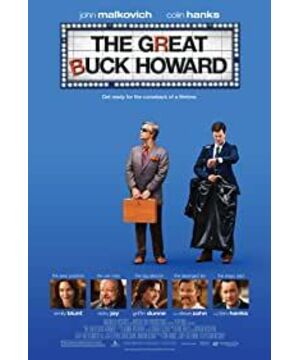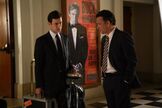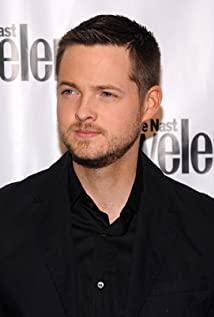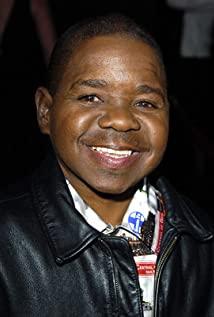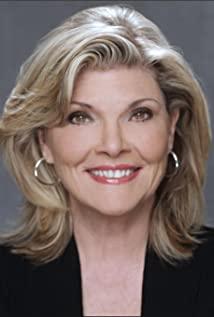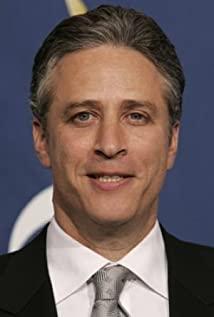Howard is a genius dedicated to magic, in those days no one knew exactly how he performed those incredible magic, including his assistant Troy Gable. He is diligent, persistent, and passionate. Even though his signature performances and greetings are old-fashioned, he still cannot hide his enthusiasm from the heart. Like all arrogant outliers, Howard is eccentric, irritable, unreasonable, and even thinks too much of himself. Although the film spends too much space to express his arrogance and paranoia, I still believe that the story that this film really wants to tell happens in the last third of the film, which is not so dull after successfully throwing away most of the Chinese audience.
[Past and Dignity]
Magician Howard lost his talent in a grand performance, and he failed to find his money in the audience as everyone expected. That wad of money has been with him all the time and has gone through countless performances. It is a token of Howard's magic career. Every time he looks for this treasure in the crowd, it is like a review, a review, and he can always close his eyes and feel it. Orientation, like a part of one's own body, to explore, to perceive, and then to find it, and then to find oneself in a deeper way. However, at this moment, he lost his token, and he felt dazed, deprived of the right to raise his arms and shout "Isn't it wild!" like an echo from the distant past. With his back to the stage, he passed through the audience sadly, looking so lonely and overwhelmed.
After a few years, under the questioning of his former assistant Gabriel, Howard talked about the unbearable past-perhaps the only stain in his magic career, it did not belong to him, and the performance made him feel strange and anxious. . For the first time, he spoke like an ordinary person, and the two were like friends who knew each other through thick and thin. He said that he still belongs to a small city where people are simple and easy to satisfy, rather than a metropolis where flowers are blooming and self-deprecating, where the disguised sincerity of the audience frustrates him. I believe in magic, that's why the accident happened that day.
Like all his openings, "I love this town!" He can cry out, and habitually call all the cities he visits "small towns", because he really doesn't understand "big cities", but he didn't expect what it is What kind of aura crushed him. While the lucky audience cynically teased and questioned backstage, Howard's vaunted magic was worthless in his mighty tone. Howard suddenly hesitated. When he returned to the stage, all the glamorous audience, the magnificent stage, and the enthusiastic voices had changed. He seemed to think it was all disguised. Do they really like his performance? So what are they doing? What are you doing? His unshakable beliefs and dreams along the way were gradually collapsed by a malicious lie, and the art he devoted half his life to was suddenly regarded as a well-known deceitful trick. Are the audience pity him? He felt like a clown, no longer a gentleman magician on stage. So he lost his magical powers and returned to the small town he was familiar with, using his abundant talents in moderation.
But if you carefully analyze Howard's performance at the end of the film, you may be able to vaguely perceive that what happened in Las Vegas is not as simple as we always thought, maybe it was really just a runaway, but is there another possibility? ? Probably with Howard's talent, he can be more satisfied by putting on a farce and fooling this hypocritical metropolis. It is such a "failure" that can best maintain the dignity of its magician.
[Those dreams to believe]
I can't think of anyone else who can replace John Malkovich as a character who is obsessed with something and pours out all his emotions. He disregards the worldly vision, does not restrain his bad temperament, is high-spirited when he is proud, and depressed when he fails. He can not only express the arrogance of domineering, but also convey the soothing of the heart. His strange appearance and obsessive eyes are all his own. It is precisely such a character who lives in the old world exclusively enjoyed by him and gradually fades out of the public eye, who dedicates touching persistence to the film.
Perhaps the kind of calmness and depth that uncovered a corner of fate was already deepened by Anthony Hopkins in "Heart of Atlantis"; and Johney Depp, who seemed to be the voice of deviant and bizarre alternatives, was more paranoid and endowed with personality. Charm; moreover, Jack Nicholson once created those unrepeatable brilliance of human nature - countless pioneers with small words and righteousness on the screen filled the audience's memory, even so, we still need a close loser who can tell the story of life true meaning, and continued to focus on his trivial and even shabby abilities.
No intention of preaching, the film "The Great Buck Howard" is just a story that is true to itself, but won the author's respect for its sincerity. Maybe it's still a less satisfying work, but it's hard to say it's the film itself.
We've seen too many movies about magic, about magicians, whether it's the whims of Japanese animation or the visual tricks that Hollywood is used to. Spectacular spectacles and mindless materials can always make people addicted, and they are blissful in the opium smoke released by the pursuit of "greater". Therefore, there is Liu Qian, who has become a big name after the Spring Festival Gala, and there is also a "Gold Medal Magician" column, and a new round of Nokia's topical marketing. I don't want to discuss the restoration of magic, because I don't know when it will fade away, like cross talk, there are always people who insist.
As the comments said, this is a "comedy film that has no destiny with stupidity", step by step into gentleness and mediocrity in inspirational intentions, and even before hiring more flattering words to boast, it disappeared in the silver sea. in huge waves. Time has its own pace, the world is changing every second, and while we sometimes wish to slow down and maintain the status quo seems most comfortable, we finally have to get involved in the hustle and bustle and competition. The magic in the film is so simple that one doesn't even bother to speculate as to why it happened; the performers are so simple, so arrogant and arrogant. After all, magic can't be used to obscure the truth, it's just a performance art that is different from political speeches and TV commercials, creating those dreams that are worth believing.
【Best trick, best time】
No one can pinpoint the rise of magic, presumably from the beginning of human activity. Early magic was closely related to religion and belief, and even today European magicians still have obvious Gothic complexes. The shamans used the superstitious psychology of the time, used the principles that people have not yet explored to create miracles to gain authority, and used magic to strengthen the sense of religious rituals, making believers more confident in their beliefs and self-identity.
In China, magic not only appears in handed down works like "Liao Zhai", but shamans have a more profound impact on history, but they are ultimately defeated by bureaucrats. That hard-to-obtain experience was seen as a betrayal of official authority. The process of communication between the sect and the gods was replaced by ceremonial behavior, and was further pushed to the fringes with the formation of the national religion. And those tricks and tricks from life in the bulls, ghosts, snakes and gods have been refined, turned into science, and thrown back into the bonfire of magic, setting off even more spectacular flames.
Magician David Copperfield's trip to China in 2002 may be an event worthy of a book, but it was nowhere near as far-reaching as the impact of the rise of the film industry on magic performances in the 1930s. In a time when video art itself was like magic, it was probably impossible to imagine the omnipotent computer effects of today. Many industries are on the decline due to the ever-changing technology, and the darlings of those times have gone from the front to the back, passing through the crowd as quietly as Howard, saying goodbye to this once great moment.
As an audience, as an obsessed, what attitude will you take to face this kind of death?
What prompted Gable to visit Howard as soon as he saw the poster? And what makes the people in the audience look forward to the results even if they are familiar with the results? If group behavior is somehow compromising, what kind of satisfaction does Howard's unchanging performance bring to them?
When magic fails, it ceases to be magic and becomes worldly life.
The story unfolding in this worldly life undoubtedly disappointed Gabriel. In order to prove to his former partners that he did not cheat, Howard adjusted the content of the show for the first time - and only Gabriel, who was sitting in the crowd, could understand the true intention of this seemingly ordinary action. The audience was obsessed with magic and looked forward to the next great show, but he was the only audience member of "The Great Howard". eccentric? luxury? No, this is just Howard's compensation for his former partner, and the perfect ending to that grand tour.
Gabriel almost believed it when Howard stood in the auditorium of the small-town theater and recreated the embarrassing scene he had in the metropolis of Las Vegas. However, Howard came to the right side of his front row when he fell into depression, said the long-awaited lines to the man in front of him, and proudly found the precious token he had lost.
This carefully arranged performance for Gabriel even makes people suspect that all the accidents that happened that year were just part of the performance. Howard's high-spirited state inspired Howard to a greater extent, making him move towards his ideal without hesitation. Because he had always believed—that it was a dream worthy of his belief, just as magic was to "The Great Howard."
For Howard, the auditorium is an extension of the stage.
For Gabriel, the stage comes from within him.
Although Gabriel had witnessed Howard's most brilliant success as an assistant, near the end of the film, both of them were extremely relieved by only small achievements. There are no dazzling tricks, no flamboyant fireworks, there are rambunctious tours, and outrageous, paranoid magicians who are loyal to the stage. Even at this moment, Howard's magic has long lost its original appeal, and Gabriel is still far away from his ideals; even if the world has long forgotten the lesser characters, they can still feel the film The sense of belonging they felt in their lives, and content with that goodbye show when they met again, that best trick, that best time.
2009.08.02 Su Fa, Beijing
View more about The Great Buck Howard reviews


